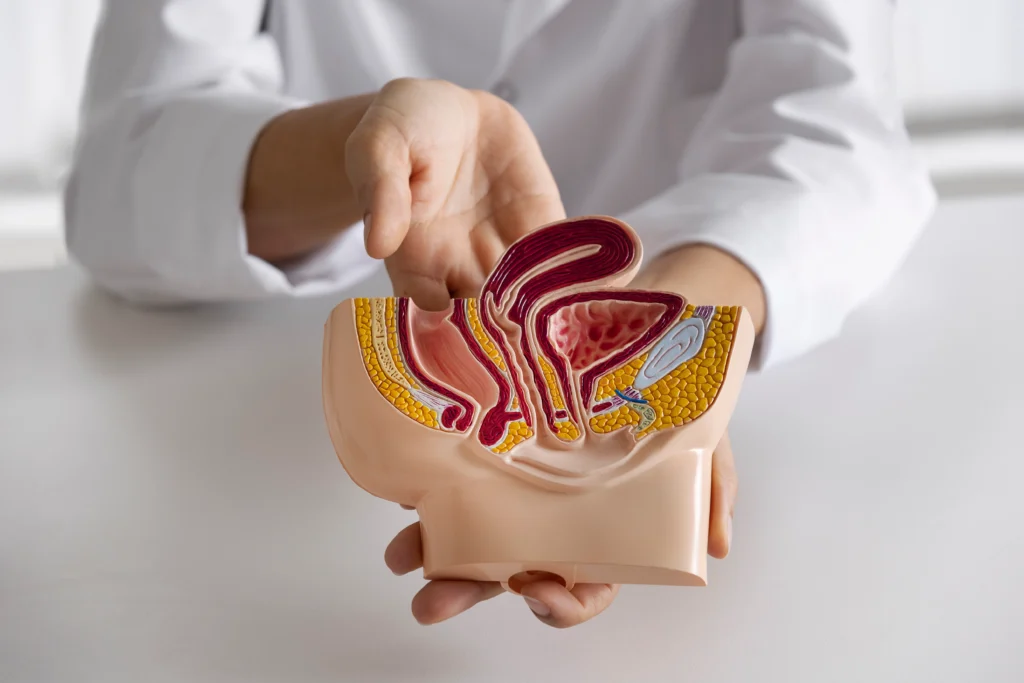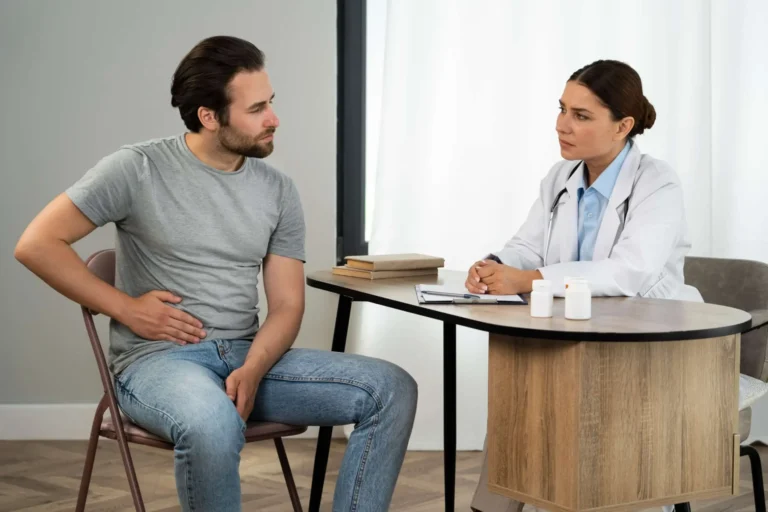Urological health is crucial, yet often overlooked until symptoms become bothersome. Recognising these early signs is key to preventing complications. Urological issues can affect anyone, disrupting daily activities and overall well-being.
Common symptoms such as frequent urination, pain during urination, or lower abdominal discomfort warrant immediate attention. These signs might seem mild initially but could indicate more severe underlying conditions if ignored.
In London, accessing a private GP promptly can lead to quicker diagnosis and treatment. A private GP not only provides an initial assessment but also directs you to specialised care if needed, ensuring a streamlined approach to managing your health.
Understanding when to seek medical advice is vital. If you’re experiencing any unusual symptoms related to urological health, consider consulting with a private GP. Early intervention can make a significant difference in outcomes and ease the path to recovery.
Understanding Urological Conditions

Urology is a vital medical specialty focusing on the urinary systems of both genders and the male reproductive system. It addresses a range of conditions, from infections to cancers, affecting quality of life and overall health.
Urinary Tract Infections (UTIs)
UTIs are common infections that affect the bladder, kidneys, or urethra. Symptoms include burning sensations during urination and frequent urges to urinate. Early treatment is crucial to prevent complications.
Kidney Stones
Kidney stones form when minerals in urine crystallize. They can cause excruciating pain as they pass through the urinary tract. Management includes hydration, pain relief, and sometimes medical procedures.
Enlarged Prostate (Benign Prostatic Hyperplasia – BPH)
BPH is a common condition in older men, where the prostate gland enlarges, obstructing urine flow. Symptoms include difficulty starting urination and a weak urine stream.
Urological Cancers
This group includes cancers of the bladder, prostate, and kidneys. Early symptoms may be subtle, making regular screenings important for early detection and improved outcomes.
Incontinence and Overactive Bladder
These conditions involve the involuntary leakage of urine or a frequent need to urinate. They can significantly impact daily activities and quality of life.
Erectile Dysfunction (ED) and Male Infertility
ED is the inability to achieve or maintain an erection suitable for sexual activity. Male infertility refers to a man’s inability to cause pregnancy in a fertile female, often linked to sperm disorders.
Understanding these conditions helps in recognising symptoms early. If you experience any related symptoms, consulting a private GP in London can be your first step towards effective treatment and management.
Signs and Symptoms: When to Take Action
Recognising the symptoms of urological conditions early is crucial. Prompt action can prevent complications and improve outcomes.
Urinary Tract Infections (UTIs)
Symptoms include a burning sensation during urination, cloudy or strong-smelling urine, and a persistent urge to urinate. Neglecting these signs can lead to kidney infections, which are more severe and harder to treat.
Kidney Stones
Watch for severe pain in the side and back, below the ribs, pain during urination, pink, red, or brown urine, and nausea or vomiting. Delaying treatment can result in blockages that cause urine to back up, damaging the kidneys.
Enlarged Prostate (Benign Prostatic Hyperplasia – BPH)
Common symptoms include difficulty starting urination, weak stream, and frequent urination at night. Ignoring these symptoms can lead to urinary retention or kidney damage.
Urological Cancers
Early signs might be non-specific, such as blood in the urine, unexplained weight loss, or lower back pain. Early detection is key to successful treatment, and delays can decrease survival rates.
Incontinence and Overactive Bladder
Symptoms include leaking urine when coughing or sneezing, sudden urges to urinate, and frequent urination. Without management, these conditions can lead to social embarrassment and isolation.
Erectile Dysfunction (ED) and Male Infertility
ED is marked by difficulty achieving or maintaining an erection. Infertility may not have obvious signs other than difficulty conceiving. Both can affect emotional and mental health if not addressed.
Ignoring symptoms not only worsens medical outcomes but also affects quality of life and mental health. Consulting a private GP for any persistent or worrying symptoms is a step towards regaining control of your health and well-being.
The Role of a Private GP in Urological Health
A private GP is often the first medical professional you will contact when experiencing urological symptoms. They play a pivotal role in the early stages of diagnosis and management.
First Point of Contact
Private GPs assess symptoms, offer initial advice, and can perform basic tests. They are crucial in determining the urgency of a situation and deciding the next steps in your care pathway.
Quick Appointments and Referrals
One of the primary benefits of seeing a private GP is the speed of access. You can often get appointments on the same day or the next, and if necessary, they can swiftly refer you to a specialist urologist.
Personalized and Comprehensive Care
Private GPs provide a more personalised approach to healthcare. They take the time to understand your health history and lifestyle, ensuring that all advice and treatments are tailored to your specific needs.
Coordination with Specialized Urologists
Should your condition require specialist care, a private GP will coordinate your referral to a urologist. They ensure seamless communication between all parties involved, facilitating a comprehensive approach to your treatment.
By consulting a private GP, you ensure that your urological health is managed promptly and effectively, setting the foundation for optimal care and recovery.
Diagnosis and Referral Process
Understanding the diagnostic and referral process can alleviate concerns and prepare you for what to expect when you visit a private GP for urological issues.
Diagnostic Tests
To diagnose urological conditions accurately, GPs may recommend several tests:
- Urine Tests: Simple yet effective, these tests can detect infections, blood, or other abnormalities in urine.
- Blood Tests: These help to check for kidney function and other underlying health issues that might affect the urinary tract.
- Ultrasound Examinations: Ultrasounds provide images of the urinary tract and are useful for detecting stones, tumors, or other abnormalities.
- Advanced Imaging Techniques (CT, MRI): For more complex cases, CT scans and MRIs offer detailed views of the urinary system, helping to pinpoint issues that require specific treatments.
Referral Process
If your GP determines that specialized care is needed, they will refer you to a urologist. This referral is usually expedited in a private healthcare setting, ensuring you receive the necessary specialist attention promptly. The GP will provide the urologist with all pertinent information, allowing for a seamless transition in care. This coordination maximizes the effectiveness of your treatment plan and supports better health outcomes.
Navigating through the diagnosis and referral process with a private GP ensures a thorough and efficient approach to managing urological health.
Treatment and Management Options
Effective treatment and proactive management are key to maintaining urological health. Here’s how minor issues are typically addressed and when to consider more specialised treatment.
Common Treatment Approaches
For minor urological problems, treatments may include:
- Medications: Antibiotics for infections or medications to relax bladder muscles.
- Physical Therapy: Techniques to strengthen pelvic floor muscles can help manage incontinence.
- Behavioural Modifications: Adjusting fluid intake times and bladder training exercises.
Specialised Treatment Necessity
Specialised treatments become necessary when conditions are complex or fail to respond to initial management. This may involve:
- Surgical Interventions: For severe cases like large kidney stones or tumors.
- Advanced Drug Therapies: Particularly for chronic conditions like BPH or severe overactive bladder.
- Referral to Urologists: For expert management of specific urological cancers or reconstructive needs.
Lifestyle Modifications and Preventive Measures
Lifestyle changes play a crucial role in prevention and management:
- Diet Adjustments: Reducing salt and protein intake to manage kidney stone risks.
- Hydration: Adequate water consumption helps prevent UTIs and stone formation.
- Regular Exercise: Maintains pelvic floor strength and overall urinary health.
Understanding these options empowers you to actively participate in your treatment, often leading to better outcomes and enhanced quality of life.
Choosing the Right Private GP in London
Selecting the right private GP is a critical step in managing your urological health effectively. Here are key factors to consider to ensure you choose a practitioner who can meet your specific needs.
Experience and Specialization
Look for a GP with a strong background in urology or general practice with a focus on urological conditions. Their experience can significantly influence the accuracy of diagnosis and effectiveness of the prescribed treatment.
Availability and Accessibility
Choose a GP whose clinic is conveniently located and offers flexible appointment times. Quick access to your doctor is essential for addressing urological issues promptly.
Patient Reviews and Clinic Accreditations
Research patient testimonials and reviews to gauge the quality of care provided. Additionally, clinic accreditations are a testament to the standards maintained, ensuring you receive high-quality medical services.
By considering these factors, you can find a private GP in London who not only understands your health needs but also provides a supportive and efficient healthcare experience.
Conclusion
Addressing urological health proactively is essential for maintaining overall well-being. Early recognition of symptoms can lead to more effective treatments and prevent complications.
Catching urological issues early allows for simpler and often more effective management. Regular monitoring and timely intervention are crucial. Regular visits to your GP help in the early detection and management of urological conditions, ensuring ongoing health and preventing future complications.

